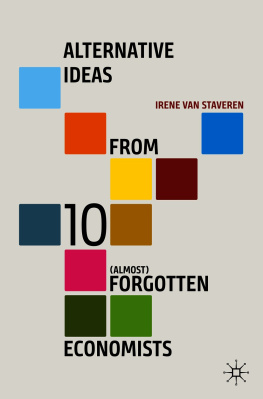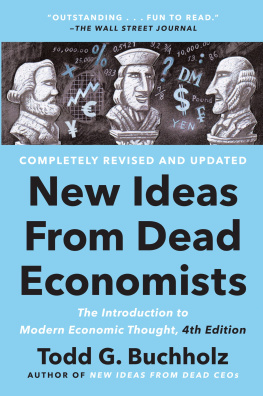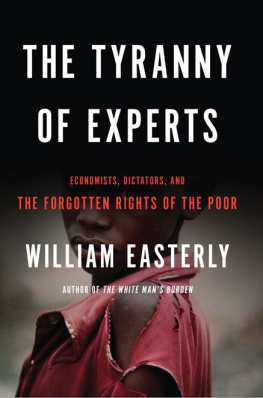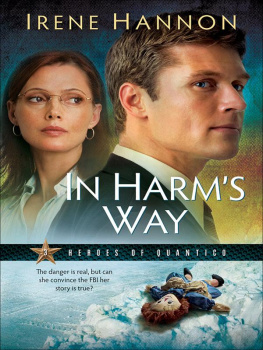Irene van Staveren - Alternative Ideas from 10 (Almost) Forgotten Economists
Here you can read online Irene van Staveren - Alternative Ideas from 10 (Almost) Forgotten Economists full text of the book (entire story) in english for free. Download pdf and epub, get meaning, cover and reviews about this ebook. publisher: Springer International Publishing, genre: Politics. Description of the work, (preface) as well as reviews are available. Best literature library LitArk.com created for fans of good reading and offers a wide selection of genres:
Romance novel
Science fiction
Adventure
Detective
Science
History
Home and family
Prose
Art
Politics
Computer
Non-fiction
Religion
Business
Children
Humor
Choose a favorite category and find really read worthwhile books. Enjoy immersion in the world of imagination, feel the emotions of the characters or learn something new for yourself, make an fascinating discovery.
- Book:Alternative Ideas from 10 (Almost) Forgotten Economists
- Author:
- Publisher:Springer International Publishing
- Genre:
- Rating:4 / 5
- Favourites:Add to favourites
- Your mark:
- 80
- 1
- 2
- 3
- 4
- 5
Alternative Ideas from 10 (Almost) Forgotten Economists: summary, description and annotation
We offer to read an annotation, description, summary or preface (depends on what the author of the book "Alternative Ideas from 10 (Almost) Forgotten Economists" wrote himself). If you haven't found the necessary information about the book — write in the comments, we will try to find it.
Alternative Ideas from 10 (Almost) Forgotten Economists — read online for free the complete book (whole text) full work
Below is the text of the book, divided by pages. System saving the place of the last page read, allows you to conveniently read the book "Alternative Ideas from 10 (Almost) Forgotten Economists" online for free, without having to search again every time where you left off. Put a bookmark, and you can go to the page where you finished reading at any time.
Font size:
Interval:
Bookmark:
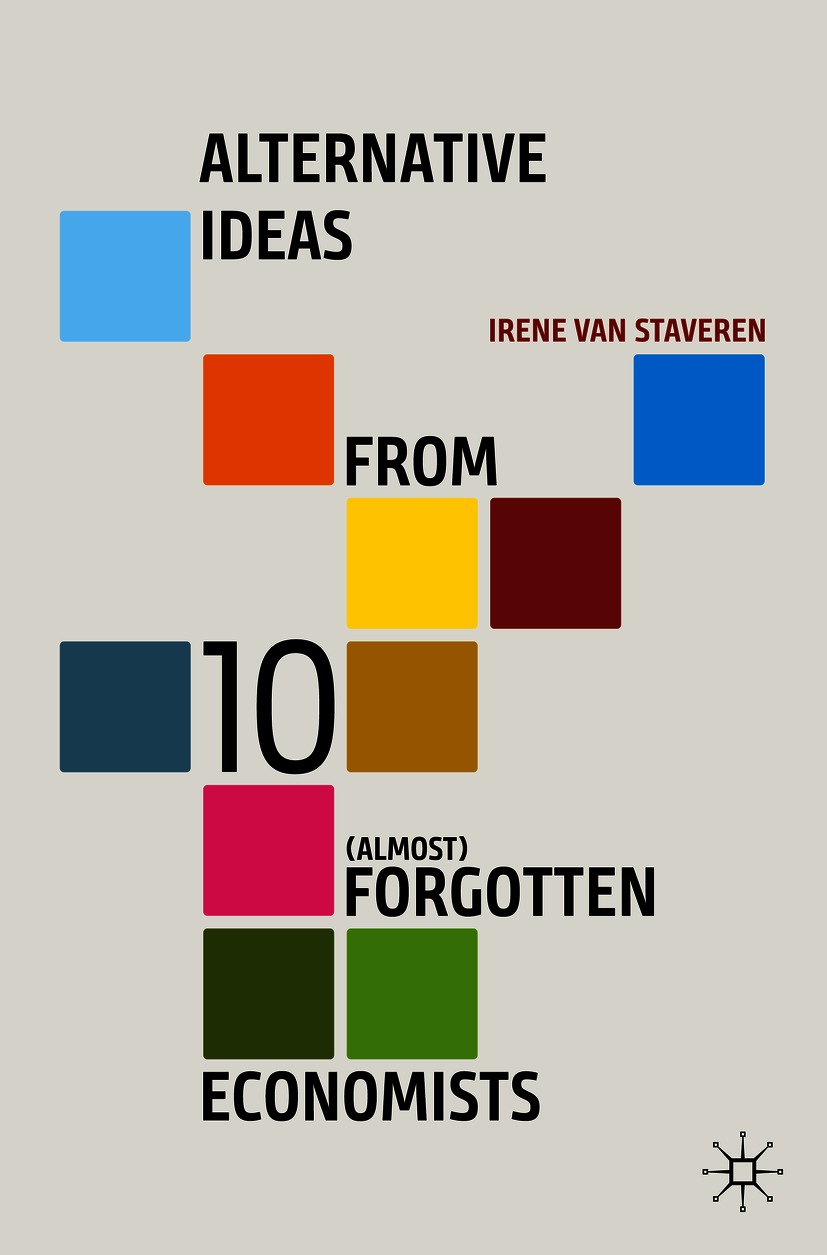

This Palgrave Macmillan imprint is published by the registered company Springer Nature Switzerland AG.
The registered company address is: Gewerbestrasse 11, 6330 Cham, Switzerland
Alternative Ideas from 10 (Almost) Forgotten Economists brings alive for our time the most fundamental insights that economics has to offer, enabling readers to both better understand the world and empowering them to change it for the better. Irene van Staverens writing is a rare combination: clear, accessible, scholarly, passionate, and entertaining all at once.
Robert Pollin, Distinguished University Professor of Economics and Co-Director, Political Economy Research Institute (PERI), University of Massachusetts-Amherst
Irenes book Alternative Ideas from 10 (Almost) Forgotten Economists makes it very clear that there is a rich diversity of ideas and theories.
A book you would want to read if you have limited time but want to know what is going on in the world of new, non-standard economic visions.
Written with passion, it inspires to read more about economists that you might have heard about for the very first time.
Peter Blom, CEO of Triodos Bank Group and co-founder and co-chair of theSustainable Finance Lab
is Professor of Pluralist Development Economics at the International Institute of Social Studies of Erasmus University Rotterdam. She is the author of various books, including a textbook: Irene van Staveren, An Introduction to Economics from a Pluralist and Global Perspective (2015). This book has been transformed into a mooc (massive open online course) on Coursera under the title Introduction to Economic Theories. Van Staveren is a member of the Dutch think tank Sustainable Finance Lab and advisory board member of Rethinking Economics NL. She is a columnist for Trouw, a Dutch daily newspaper, on economics and social and ecological sustainability. She has been awarded the Gunnar Myrdal Prize for her book The Values of EconomicsAn Aristotelian Perspective (2001). She is also the 2014 receiver of the Thomas Divine Lifetime Achievement Award by the Association of Social Economics.
The 2008 financial crisis offered an opportunity to change economicscritical economists like myself were optimistic about this. In June 2009, The British newsmagazine The Economist welcomed a long-awaited revision of economics programmes in colleges and universities, with a cover showing a melting textbook. But hardly anything changed in economics departments over the past decade. For about 40 years, it has been dominated by the neoclassical paradigm assuming self-interested and utility-maximizing agents expressing their exogenous and purely subjective preferences through demand and supply in free markets, constrained only by their resources.
Today, with a financial sector that has remained large and vulnerable, an economy generating rising inequality and rapid climate change, and which has shown to be very vulnerable to a pandemic, the world deserves even more urgently economic change as well as a change in economics that would help such a change materialize. But whereas most economists continue doing their highly specialized modelling and have adopted context-free randomized controlled trials as the golden standard for policy research, some even defend the current economic system capitalism as the best imaginable. They do so by arguing that the alternative is either North Korean style communism or anarchy.
The challenge is to change but not to abolish marketsthat would be foolish. Try to think of it. No labour market but some central planning agency that tells you which job to take or working for your own account but not being able to sell your goods or services to anyone. No product marketsbut how can you consume the basic necessities if you do not have the resources and skills to grow and manufacture them by yourself, or with your local community without any form of exchange to get resources from outside your community? And, indeed, no international trade at all. And no form of financial markets for savings, credit and investment. Not even a highly regulated one or one run entirely by state banks allocating demand and supply of finance between households and firms. And try to imagine a state without any tax income . It would only function by brute force, demanding forced labour instead of taxes and going back to feudalism. An economy consisting of only a state and a community economy will function at a very low level of wellbeingno resources for decent health care, public schools or scientific research, for example. Moreover, an economy without trade will punish those living in countries with limited natural resources and favour those who are lucky enough to be close to abundant fresh water, fertile soil and minerals. It may sound romantic, a world without markets, but to me it seems a nightmare in which the lucky and the powerful are likely to get what they want, either through the state run by elites due to a lack of a tax base, or by ignoring the state, which sounds equally undesirable. It will be a nasty world, just like a world without a state, as Thomas Hobbes argued almost four centuries ago. Just as nasty as a world without communities with their unpaid work in families, mutual caring and voluntary work in and between households, and their collective action around community resources. The challenge for a better economy is to abolish
Font size:
Interval:
Bookmark:
Similar books «Alternative Ideas from 10 (Almost) Forgotten Economists»
Look at similar books to Alternative Ideas from 10 (Almost) Forgotten Economists. We have selected literature similar in name and meaning in the hope of providing readers with more options to find new, interesting, not yet read works.
Discussion, reviews of the book Alternative Ideas from 10 (Almost) Forgotten Economists and just readers' own opinions. Leave your comments, write what you think about the work, its meaning or the main characters. Specify what exactly you liked and what you didn't like, and why you think so.

